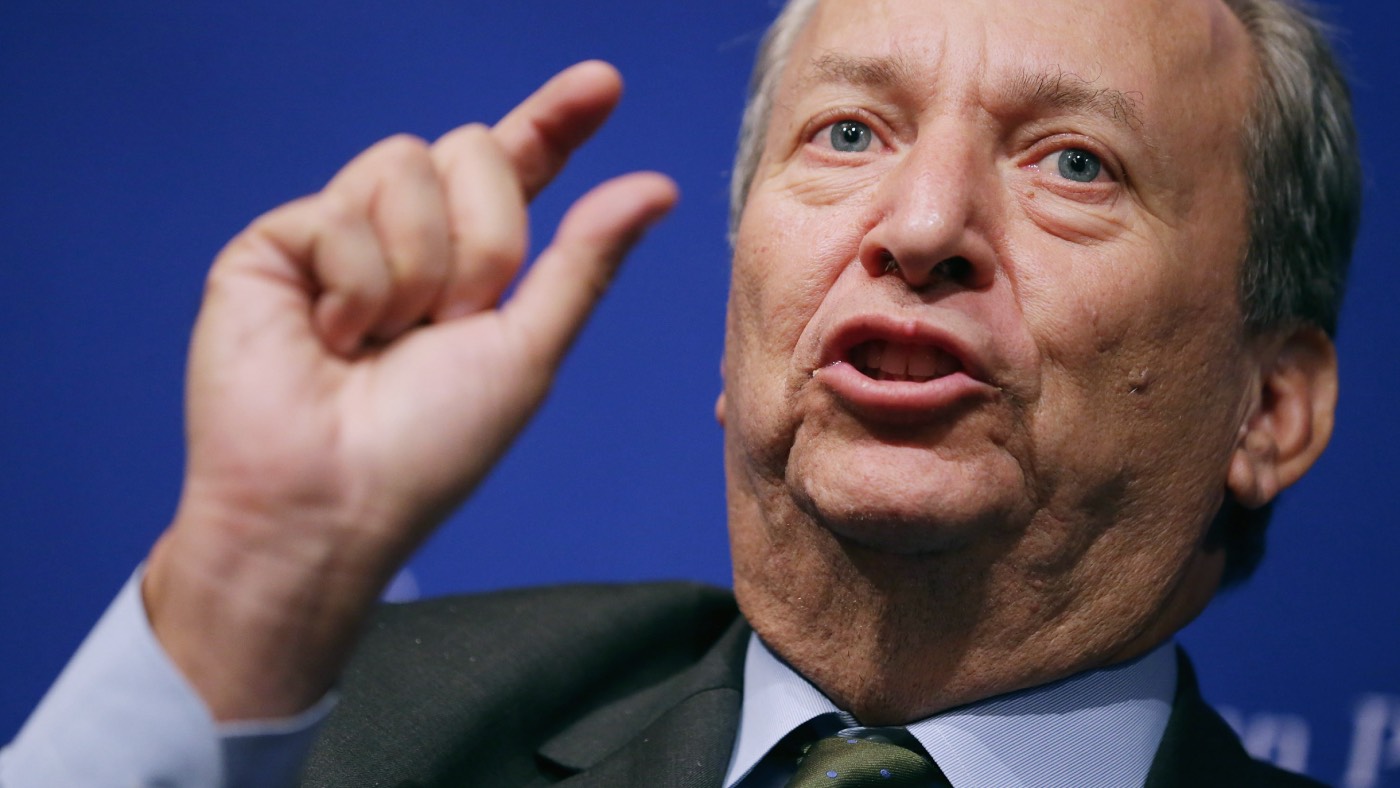‘Desperate’ UK has ‘no leverage’ for US trade deal
Bill Clinton's trade secretary says ‘you make more concessions with a wealthy man’

A free daily email with the biggest news stories of the day – and the best features from TheWeek.com
You are now subscribed
Your newsletter sign-up was successful
The UK is too desperate to secure a trade deal with the US, according to Bill Clinton's treasury secretary.
As Dominic Raab, the new foreign secretary, heads to the US to explore the potential for an agreement, Larry Summers said the UK was in a weak position when it came to negotiating with trade partners.
Summers said: “Britain has no leverage, Britain is desperate… it needs an agreement very soon. When you have a desperate partner, that’s when you strike the hardest bargain.”
The Week
Escape your echo chamber. Get the facts behind the news, plus analysis from multiple perspectives.

Sign up for The Week's Free Newsletters
From our morning news briefing to a weekly Good News Newsletter, get the best of The Week delivered directly to your inbox.
From our morning news briefing to a weekly Good News Newsletter, get the best of The Week delivered directly to your inbox.
He said: “We have economic conflict with China and, even on top of that, the deterioration of the pound is going to further complicate the negotiating picture.
“We will see it as giving Britain an artificial comparative advantage and make us think about the need to retaliate against Britain, not to welcome Britain with new trade agreements.”
He concluded: “You make more concessions dealing with a wealthy man than you do dealing with a poor man.”
However, the keen Brexiteer and former Tory leader, Iain Duncan Smith, has dismissed the claims.
A free daily email with the biggest news stories of the day – and the best features from TheWeek.com
“This is a classic attempt by Larry Summers to use Brexit for domestic point-scoring,” he said.
“Forty-five Republican senators have signed a letter to the prime minister pledging to back a trade deal with Britain once we have left the EU. The president (Donald Trump) himself has expressed his enthusiasm for a UK-US deal.”
Meanwhile, one US senator has said Britain should be at the front of the queue for a trade deal with the US, in a statement that the Daily Express sees him “laugh off the Brexit scaremongering” of Summers.
“Many of my colleagues in the Congress would say that Great Britain should be in the front of the queue given everything our nations have gone through together,” said Tom Cotton.
“Obviously it wouldn’t be a matter of days or weeks for such negotiations, it might be months, but I would suspect it would be months not years.”
-
 What are the best investments for beginners?
What are the best investments for beginners?The Explainer Stocks and ETFs and bonds, oh my
-
 What to know before filing your own taxes for the first time
What to know before filing your own taxes for the first timethe explainer Tackle this financial milestone with confidence
-
 The biggest box office flops of the 21st century
The biggest box office flops of the 21st centuryin depth Unnecessary remakes and turgid, expensive CGI-fests highlight this list of these most notorious box-office losers
-
 Currencies: Why Trump wants a weak dollar
Currencies: Why Trump wants a weak dollarFeature The dollar has fallen 12% since Trump took office
-
 TikTok: New owners, same risks
TikTok: New owners, same risksFeature What are Larry Ellison’s plans for TikTok US?
-
 Trump wants a weaker dollar, but economists aren’t so sure
Trump wants a weaker dollar, but economists aren’t so sureTalking Points A weaker dollar can make imports more expensive but also boost gold
-
 Leadership: A conspicuous silence from CEOs
Leadership: A conspicuous silence from CEOsFeature CEOs were more vocal during Trump’s first term
-
 The end for central bank independence?
The end for central bank independence?The Explainer Trump’s war on the US Federal Reserve comes at a moment of global weakening in central bank authority
-
 Can Trump make single-family homes affordable by banning big investors?
Can Trump make single-family homes affordable by banning big investors?Talking Points Wall Street takes the blame
-
 Phish food for thought: Ben & Jerry’s political turmoil
Phish food for thought: Ben & Jerry’s political turmoilIn the Spotlight War of words over brand activism threatens to ‘overshadow’ the big ice cream deal
-
 What a rising gold price says about the global economy
What a rising gold price says about the global economyThe Explainer Institutions, central banks and speculators drive record surge amid ‘loss of trust’ in bond markets and US dollar